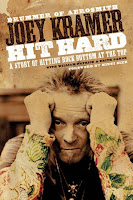Here's another great article, printed here with permission and recently featured in my good friend and publishing expert Jerry D. Simmons' newsletter, which you can subscribe to at www.writersreaders.com.Making the Right Editing Match - By Barbara McNichol
Setting out to find the right editor for your manuscript puts you on the road to feeling confident you’ve got a good match. You want to feel comfortable that your editor understands what you’ve set out to accomplish so you can “polish” it together.
Look for a reputable editor who understands the type of book you have written. For example, if your book is business or self-help, choose an editor experienced in editing these genres. Ensure that the editor you chose has worked with both traditional and self-published books over a number of years. That person’s website should reveal that information and project a professional image. After all, you want your writing to reflect a professionalism that comes from expert editing.
To help in your search for find the right match, use this checklist of questions to prepare you for questions a good editor could ask in the qualifying process.
Checklist of Questions to AskYour answers to these questions give a professional editor a better understanding of your project and help you both make a match in heaven. How would you answer these?
· Who is in your book’s target audience (demographics, age group, position, industry, region, etc.)?
· What genre or market niche does your book fall in? What section would it be found in a bookstore?
· What is your expected editorial timeline (e.g., when did you promise to give it to an agent or designer, or have it ready for a conference, etc.) allowing time for your review, peer reviews, and a professional editor’s review?
· How much of your book is written? Have you finished all the content you want including front and back matter (e.g., foreword, testimonials, acknowledgments, dedication, footnotes, resource list, glossary, appendix, etc.)? If your answer is not 100%, what is missing? When would you be ready to send your complete content?
· What is the current length of your book before editing? (number of pages and/or number of words in an MS Word document)
· What is the anticipated total length, including front and back matter?
· If you want to have a foreword, have you asked someone to write it and provided a deadline for delivering it?
· How much are you expecting to spend on having your book professionally edited (excluding proofreading after the design)?
· What else do should the editor know about your expectations so he or she can do a really good job for you?
An editor who asks these types of questions shows eagerness to understand your project and set up a discussion that gives you a sense of how you’d work together.
Here’s a key question: “Is the manuscript 100% content-complete?” If you answer “yes,” you can expect a project price and an estimated timeline from an experienced editor. If it’s “no,” your manuscript is likely a candidate for a Manuscript Review. This analysis evaluates the ideas and wording to provide direction for changes you’d make before it’s deemed content-complete.
The All-Important Sample EditHow do you start to find the right editor for your manuscript? First, ask your writer and designer friends for recommendations, check acknowledgments in books you like and contact the editor listed, and search the Internet for editors in your genre. Then request a Sample Edit of your own work—especially if more than one editor is in the running for your business.
If an editor works magic on your writing but you don’t agree with the approach or the kinds of changes made, it’s good to discuss them up front so you both can adjust. Some authors (mostly new ones) fall in love with every word and find it painful to see their prose change. That’s why discussions help a lot.
Here’s a rule of thumb when reviewing the Sample Edit: If you, the writer, can clearly see an improvement from the editor’s work, if you recognize that the words flow better and your writing has more clarity and pizzazz, that’s a green light. If you don’t agree with the changes or find yourself arguing with them, that’s an amber light. Time to talk.
Yes, locating an editor who’s the right match for you requires effort to make sure you’re comfortable with the editor’s approach. Ultimately, you want your editor to be the advocate of those you want to reach—the pro who makes it easier for your readers to connect with you and your message.
Barbara McNichol edits articles, book proposals, and manuscripts. Request a free questionnaire “Getting to the Results You Want” based on the ideas in this article via email at
editor@barbaramcnichol.com or contact Barbara at 887-696-4899 (toll free). To help you perfect your writing, sign up for Word Tripper of the Week, a free ezine at
http://www.barbaramcnichol.com/.
To subscribe to Jerry D. Simmons'
Tips for Writers from the Publishing Insider newsletter, visit
http://www.writersreaders.com/.



